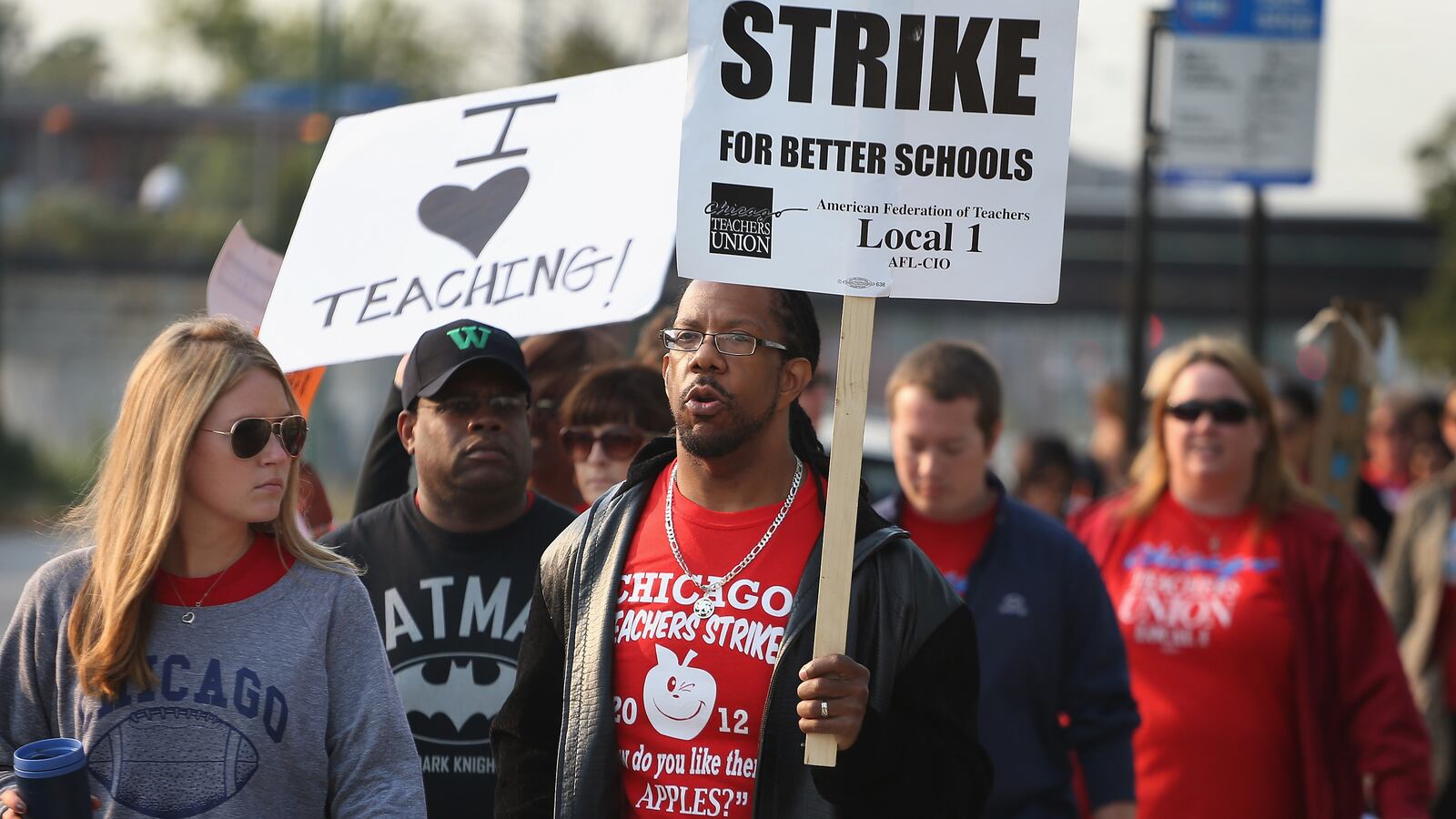As teachers at a contract school in the midst of negotiations threatened a walkout last week, the Chicago Teachers Union urged its members at district-run schools to save money in anticipation of a potential strike.
Regardless of whether Lori Lightfoot or Toni Preckwinkle wins the April 2 runoff election, the union is gearing up for possible strikes on two fronts after helping lead two strikes at charter schools in recent months. The union has endorsed Preckwinkle.
The union posted a message to members last week warning them to start stashing money away in case there’s a teacher strike at Chicago Public Schools next school year.
Related: Buoyed by L.A. strike, Chicago teachers union delivers 75-item list of demands to the city
“We don’t know if we’ll need to strike the new mayor, but we better be ready, so start saving at least 10 percent of each check going forward to make sure we can stand strong on the picket line,” CTU President Jesse Sharkey wrote in a blog post updating members about ongoing contract negotiations with the city.
The union didn’t immediately respond Monday to requests for comment about the status of negotiations or early points of contention.
But this latest union hint at a strike follows a rally last week by more than 40 educators at the Chicago High School for the Arts who were supported by more than 100 students, in calling for higher wages, more money for classroom supplies and pension contributions at the contract school.
If they walk out, it would be the third strike led by the Chicago Teachers Union this school year. It’s one of eight contracts at non-district schools the union is negotiating.
The union is now bracing for the possibility that some 21,000 teachers at district-run schools and support staff could strike next fall, even as it continues negotiating with the city. The union delivered a 75-point list of contract demands to the city in January after a rally outside the office of Mayor Rahm Emanuel. The list included pay and benefit increases as well as decreased class sizes, more black and brown teachers, more social workers and librarians, and affordable housing for families and employees.
The union also believes that some issues that were spelled out in the 2015 contract have not been adequately addressed, including partnering schools with community groups to provide support services, and establishing restorative justice policies in some schools.
Related: Charter teachers won big in nation’s first strike. What now?
State law prohibits the union from striking over issues that are matters of policy, including class sizes and discipline programs, but that doesn’t mean those bargaining points can’t be used as leverage during negotiations — and the Chicago Teachers Union has previously demands beyond wages and benefits.
In 2012, the union struck after Emanuel, early in his term as mayor, canceled planned raises and increased the role of test scores in teacher evaluations. After seven days, the union won substantial raises and concessions on evaluation rules.
The nation’s first charter teacher strike last year, which the Chicago union led, also ended with gains for teachers and paraprofessionals at the Acero network. Earlier this year, the union led a strike against Chicago International Charter School, an action that helped bring salaries of nearly 200 educators up to the district pay scale and averted management’s threats to cut social workers and counselors in exchange for those raises.
Related: Charter teachers laud new contract on first day back at school after nine-day strike
Whoever wins the April 2 mayoral runoff will have to negotiate a contract with the union for teachers at district-run schools in the likely event that Emanuel hasn’t already reached a deal before leaving office in May.

